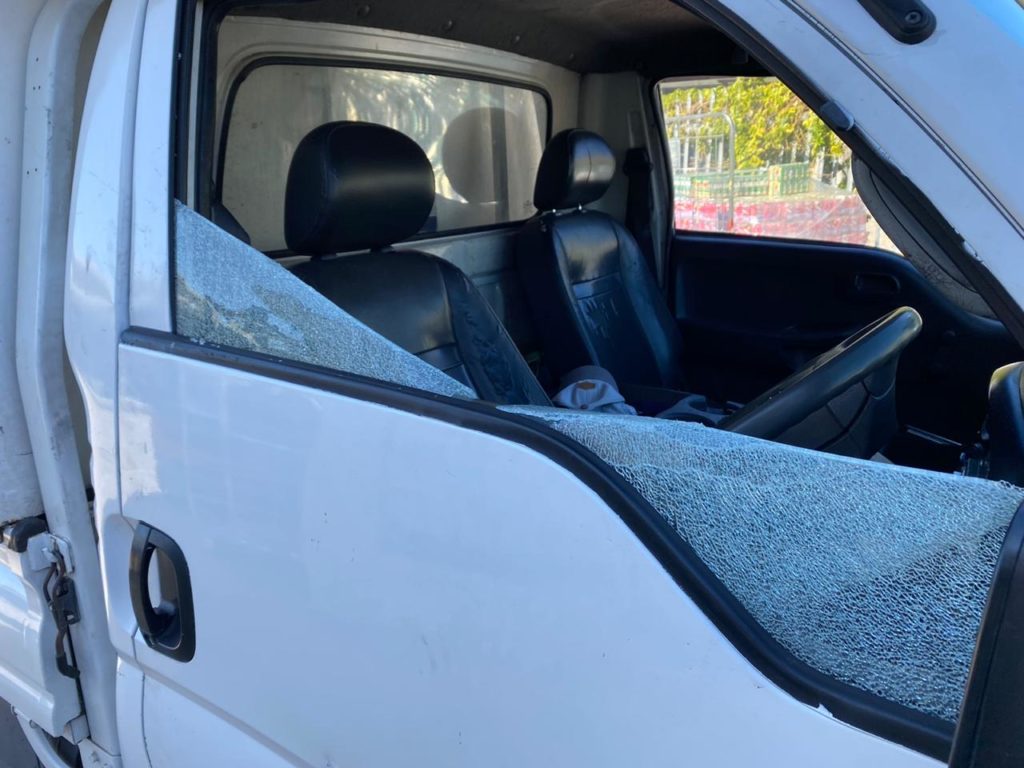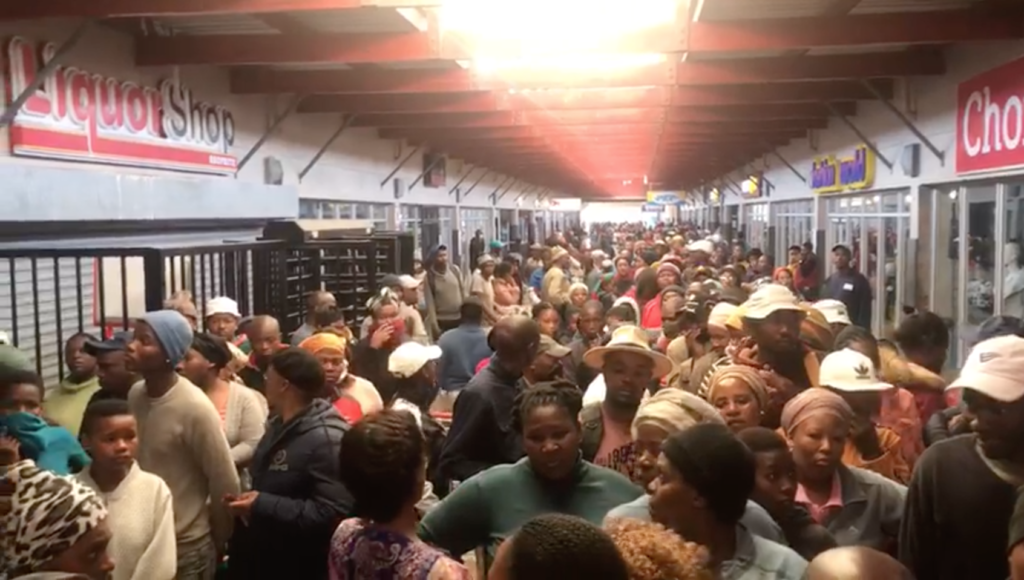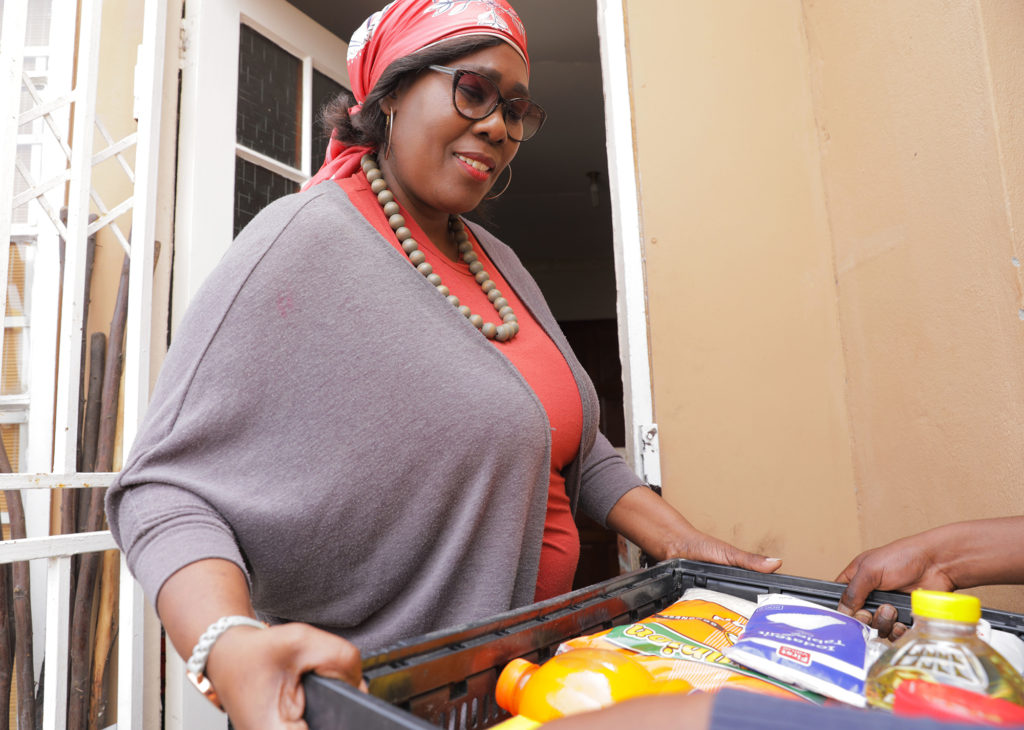The township food ecosystem is broken. This is hugely perpetuated by the Coronavirus crisis…
Over the lockdown period there has been even further fallout of large stores, and food supply & distribution systems – as well as closure of the essential Spaza stores due to a surge in looting and COVID-19 health regulation closures.
In the past 2 days we’ve had two Yebo Fresh delivery trucks attacked. Our drivers are now having to be escorted into the townships by the police, and are carefully traced by our systems. We realise the critical service we are providing, delivering food, and are absolutely committed to getting it to our customers.
There is a massive risk of further aggression, increased Coronavirus cases and food systems collapsing. We need to urgently spread the load in townships to take point pressure and 100% dependency off the formal retailers.

Concerns:
- Township food infrastructure has already been insufficient long before COVID-19. There are not enough large shops (the density of supermarkets per inhabitant is on average 15x lower in Cape Town’s townships than, for example, the southern suburbs).
- On average 60-70% of food supply in townships is covered by the informal market (spazas, hawkers, home kitchens). Most of these have been forced to close, or are closing rapidly right now because of the risk.
- During the Coronavirus pandemic this has been getting worse: average waiting time at the big retailer/s in most Western Cape townships will be at least 3-4 hours. Waiting lines and malls are massively overcrowded (without any social distancing!) and this will be much worse come month end.
- Looting has started, with any transport or location carrying food now becoming a target. Not just the large stores or branded trucks. Also the spazas, charities, soup kitchens, unbranded small delivery trucks. Even people walking home from a store.
- Large stores temporarily closing due to Coronavirus (e.g. Goal supermarket in Delft: now only one supermarket remaining for 200,000 people).
- The government voucher system seems to be focusing on the major retailers.
This is a dangerous situation where the ‘point pressure’ on the limited number of formal retailers further increases to breaking point and where, even if you have money or a voucher, you may still not be able to buy food.
Aggression, looting, attacks and corona-cases may get worse to the point that all food supply and distribution to and in townships may stop entirely as it will simply become too dangerous, at a risk of real starvation happening.

Spread the load on the township food distribution system / ‘flatten the curve’
In light of these concerns, and based on our consumer experiences and supporting data, we would like to help with some implementable suggestions:
- Encourage organisations and employers to spread the pay to township residents around month end.
- Create an accessible and online inventory of mid-sized township food distribution organisations. Including their locations and their capacity, e.g. spazas and spazarettes, large food drives, soup kitchens, delivery services, etc.
- URGENTLY Organise security and protection for mid-size and small organisations that are vital for food supply, including all of the above. Having the army protect a big retailer truck will not be enough: the real risk and dependency is on the finer distribution network, which is also much less vulnerable to a complete temporary ‘wipeout’ due to a corona-infection
- Ensure mid-size food suppliers such as Spazas and Yebo Fresh-like services are included in the voucher distribution program. Only including large formal retailers and excluding the critical mid-size network means even longer overcrowded waiting lines to find half-empty stores, even more aggression, even more risk of faster spread of the Corona-virus.
Happy to discuss!
Jessica Boonstra, CEO Yebo Fresh
Background: Yebo Fresh is an online township food delivery service based at Cape Town Airport Industria. Our core competency is to efficiently source, pack and deliver food parcels into townships. The company is growing exponentially as we work closely with a large number of NGO’s and Community Action Networks. We are currently packing 500 food parcels (56,000 meals) daily and this will ramp up to 2000 (220,000+ meals) a day as we open our third warehouse next week.

(Featured image: Bram Vermeulen via Twitter)

